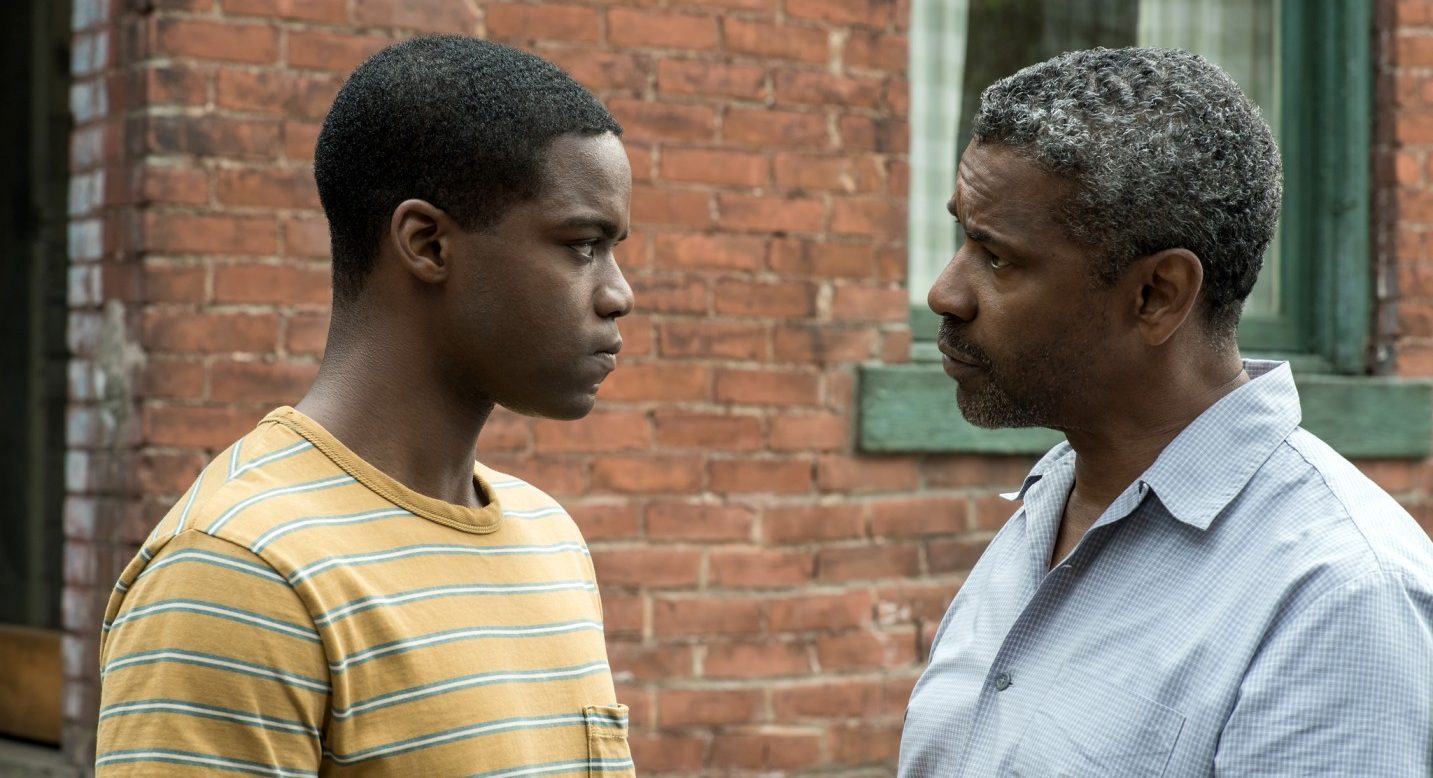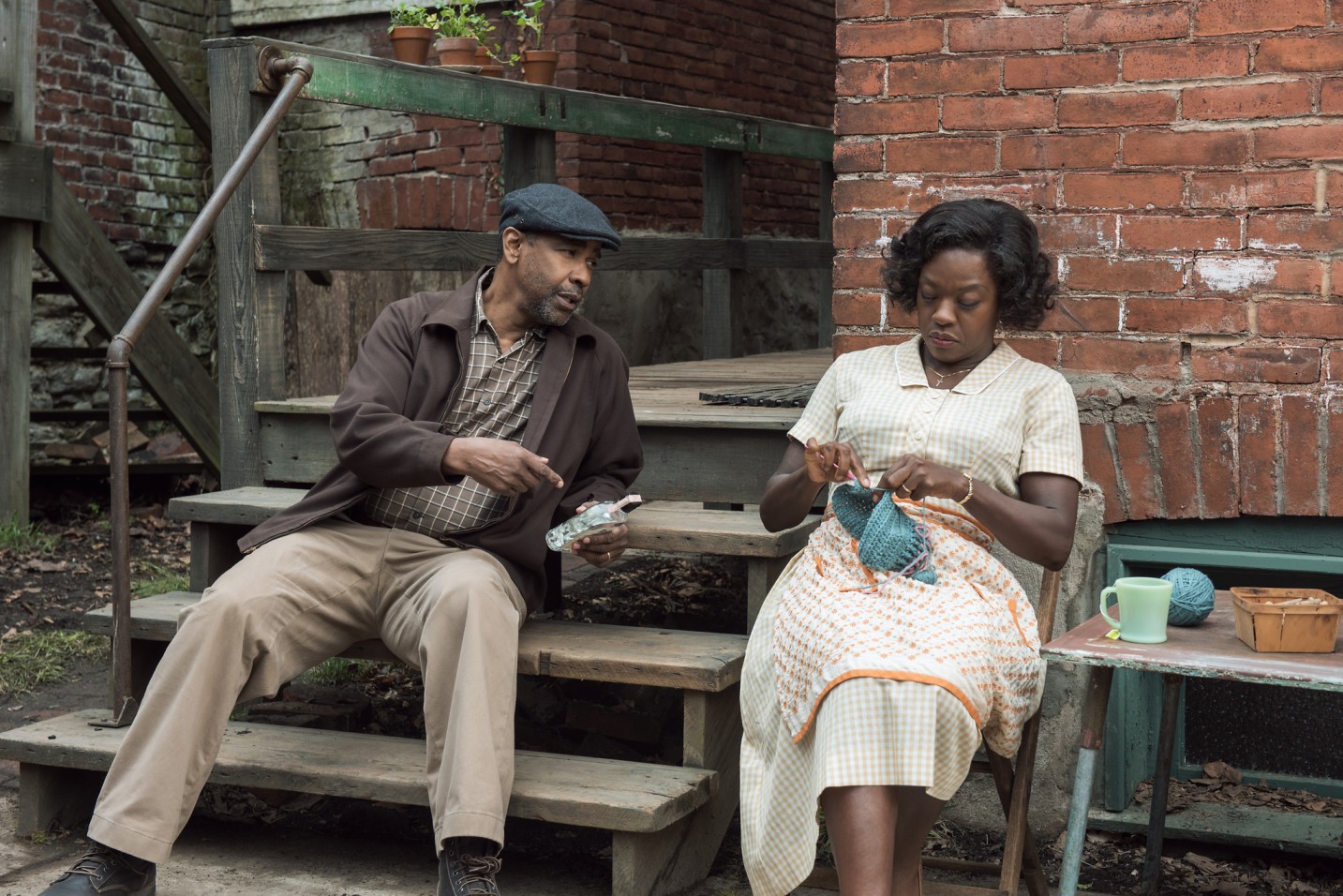Directed by Denzel Washington, ‘Fences’ is a period drama film that centers upon the life of Troy Maxson (Washington), a sanitation worker who lives with his wife Rose and son Cory in Pittsburgh, Pennsylvania, in 1950. The catch? In his younger days, Troy was a pro baseball player who didn’t even get the opportunity to try his luck at the game because he was too old by the time chance arrived. Now, his son, Cory, wants the same opportunity. Whether Troy lends his support to Cory to pursue his dream of making it big in the world of football is what the rest of the film chronicles.
The 2016 movie is packed with brilliant performances by a stellar cast comprising Denzel Washington, Viola Davis, Jovan Adepo, Stephen McKinley Henderson, Mykelti Williamson, Russell Hornsby, and others. The compelling screenplay, coupled with the Pittsburgh of the 1950s as the backdrop, gives us a clear view of the physical and emotional struggles of a working-class Black family during that period while throwing light on the dynamics within Troy’s family. So keeping all these in mind, let’s explore whether ‘Fences’ is rooted in reality!
Fences is Partially Based on a True Story
‘Fences’ is partially based on a true story. It is an adaptation of August Wilson’s 1987 Pulitzer Prize-winning play of the same name. The play is sixth of the ten in the playwright’s ‘Pittsburgh Cycle’, a collection of plays that focuses on the lives of African-Americans in the 20th century. Though not based on actual events, the fictional story is a slice of life. There is truth lurking underneath the surface as the character of Troy Maxson is inspired by real-life black boxing legend Charley Burley, whose family lived in Hill District in Pittsburgh, Pennsylvania, the same place around which Wilson based his play. In fact, Wilson grew up in the same neighborhood as the Burley family.

Opening up about his childhood and inspiration, August Wilson told The Daily-Beast, “I grew up without a father, and the male image that was in my life… was Charley Burley. And that’s what being a man meant to me, to be like him.” In the film, Troy Maxson never gets the opportunity to be selected in the big baseball leagues, just as his real-life counterpart Charley Burley never got a chance at a fight at Major League Baseball. Burley eventually became a sanitation worker, a fate that the character of Troy shares with him. While it is made clear in the film that he was too old by the time leagues decided to usher in players of color, he stated that he was denied because he was black.
The resulting pain and anger, despite being chained to the rather dormant part of Troy’s mind, often spurts out in the worst of ways, adversely affecting those around him emotionally, especially his wife Rose, who also sacrifices so much for him in the 18 years of their marriage, and much worse, his son Cory who aspires to be a football player. Almost subconsciously, Troy is unable to let his son profit from the things that were denied to him. Specifically speaking, Cory’s recruitment into his college football team. Whether and if yes, how Troy overcomes this inability is what ‘Fences’ deals with; an aptly named title that stands for people and emotions that we need inside and those that we should stay from.
Going deeper into the organic nature of the story of ‘Fences’ and its characters, Viola Davis spoke to NPR about how for her, the film was a journey or a “portrait” of not just a woman but womanhood itself with its smiles and turmoils. On the other hand, Denzel stated how, for him, Troy’s arc, despite being discrepant almost to the point of hateful, was spiritual, “From hell to hallelujah.” Talking about it in the interview, Denzel said, “One of the first things I wrote down on the script as I was starting to do rehearsals for the play six years ago — it just hit me, I wrote, ‘From hell to hallelujah.'”
The multi-faceted personality further quipped, “And early in the play he’s always saying, ‘Aw, hell.’ Aw, hell this. Aw, hell that. Aw, hell this. And by the end of the play he’s screaming hallelujah. So the arc of the character for me was a spiritual arc. If God was sitting there watching, he’s saying, ‘OK, that’s as far as he’s going to be able to go.'” This is quite contrary to how we as the audience perceive Troy i.e. someone who, borrowing his own words from the film, wrestled Death and won (although Death did promise to return). So his flaw, in the way he thinks he can defeat Death, is what makes him more human, thereby making his journey akin to Denzel’s arc for the character.
Taking all the aforementioned factors into account, it is evident that ‘Fences’ does make use of reality to fuel its fictional narrative in ways more than one. In conclusion, we can say that considering Wilson didn’t want his play to be made into a feature film unless a person of color steered it, stating the story’s cultural stronghold, Denzel Washington helming the project is nothing but perfect, not only for us cinephiles but perhaps even for Wilson himself, who passed away in October 2005. He must be really happy up there now.
Read More: Best Movies Based on Plays


You must be logged in to post a comment.